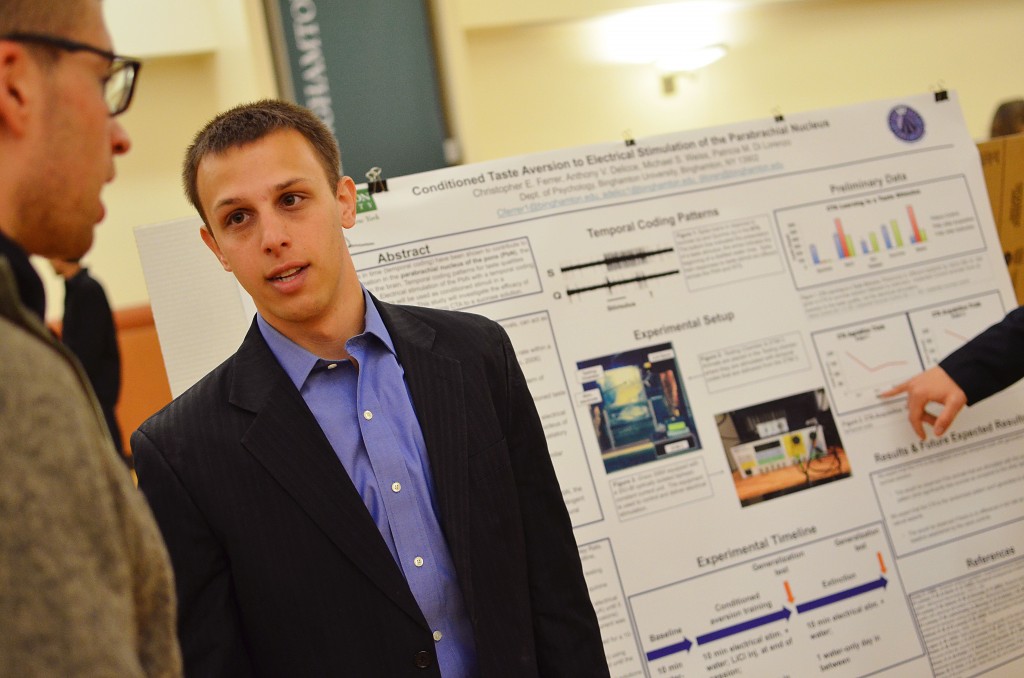
From the psychology of friend-zoning to the analysis of Lyme disease in the Southern Tier, there is a lot of research being done at Binghamton University. On Friday, students and faculty had the chance to learn a little bit about it.
The fourth annual Research Days was a weeklong series of events celebrating research on campus and beyond. As part of this, students lined up their posters in the Mandela Room in the New University Union to share findings in fields ranging from sociology to environmental studies.
This year’s poster session was broken into two hour-long time slots to accommodate the 105 presenters. The poster session was open to anyone interested in academic research, regardless of discipline. Students applied online to feature their work.
“Research Days and the poster session in particular is our way to help students share their research,” said Janice McDonald, director of the Undergraduate Research Center. “It’s not a contest, it’s not exclusive; it’s for everybody.”
Gabriella Shull, a junior majoring in biomedical engineering, presented her research on the effects of titanium dioxide on the body’s ability to absorb glucose. Shull said she hoped her research will lead to the FDA enacting regulations on titanium dioxide.
“Titanium dioxide is in almost all processed foods,” Shull said. “The average American consumes 100 billion particles a day. But no one knows what they do to your metabolism.”
According to Shull, there is a correlation between metabolic disorders such as diabetes and Crohn’s disease and an increase in titanium dioxide consumption.
“We found that titanium dioxide decreased the amount of glucose that was getting [absorbed in the small intestine],” Shull said. “That means your body is getting less glucose. And glucose is important; basically your body needs it the way it needs oxygen.”
Siu Lam Koo, a senior majoring in integrative neuroscience, studied violence and sexual objectification in music videos by looking at their parodies, which his team deemed a socially prevalent way to understand how people respond to media.
“We looked at whether or not sexual objectification and violence in music videos would cause certain types of parodies to emerge,” Koo said.
After watching 485 parody videos, Koo found that there were different themes in parodies to different issues. Parodies of violent music videos, such as Rihanna’s “Love the Way You Lie,” tended to downplay the violence while videos mocking sexual objectification tended to exaggerate sexuality to critique society’s view on sexuality and the gender double standard.
According to Koo, parodies do not acknowledge violence as much because it is a taboo subject.
“We think that this downplay is because violence is not as normative as sexual videos are, so people don’t really know what to do with it,” Koo said.
Rachel Linderman, a senior majoring in psychology, said she found the relevancy of the research interesting.
“We consume so much media, and we don’t think about the messages being shoved down our throat,” Linderman said. “I thought the information that was presented was very pertinent to us both as students and consumers.”
According to McDonald, the poster sessions are a vital way for students to help share their research.
“If you do research and you don’t share it, you’re not doing anything,” McDonald said. “You’re creating knowledge that stays in a vacuum. But by sharing your research, you’re getting out to others.”


